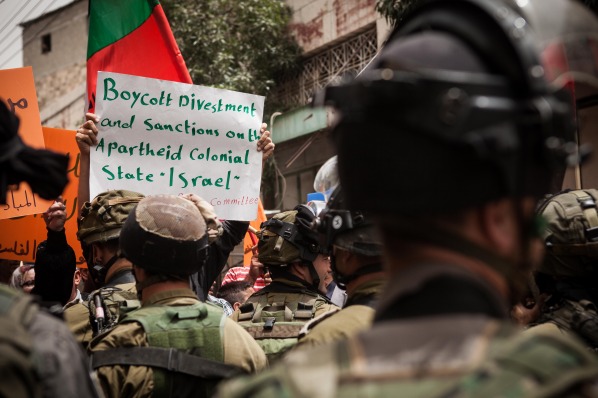Tag: Prisoner Hunger Strike
-
Prisoner solidarity in Hebron
7th June 2014 | International Solidarity Movement, Khalil team | Hebron, Occupied Palestine Since the Palestinian prisoners began their hunger strike, there has been a protest each week in al-Khalil (Hebron). The majority of these demonstrations have been in the H1 area (under Palestinian Authority civil and security control), not directly against the Israeli military. However, On…
-
Human rights organizations request immediate intervention from EU Foreign Policy Chief Catherine Ashton
1st June 2014 | Addameer Prisoner Support and Human Rights Association | Ramallah, Occupied Palestine Baroness Catherine Ashton High Representative of the European Union for Foreign Affairs and Security Policy Vice-President of the European Commission 242, rue de la Loi B-1049 Brussels Date: 01 June 2014 Re: Mass Hunger Strike of Palestinian ‘Administrative Detainees’ Dear High…
-
Photo story: Nablus rally in solidarity with political prisoners
On the 26th of May, more than 500 people joined a demonstration in Nablus in solidarity with Palestinian political prisoners and hunger strikers. Starting from the city’s main square, they then marched through some of the main streets of Nablus. On the 24th of April, over 100 Palestinian political prisoners, many of whom are held under administrative…



